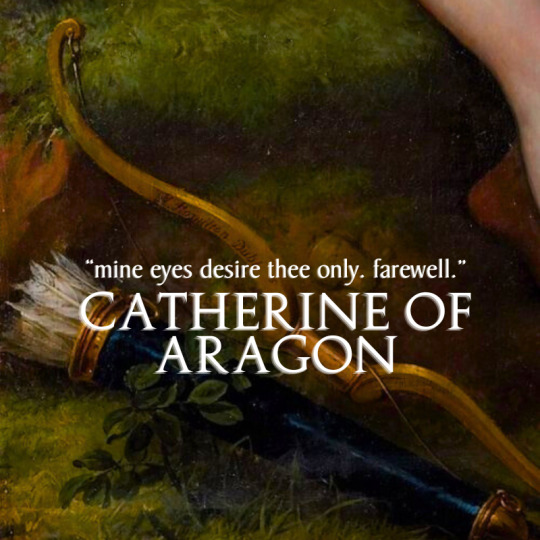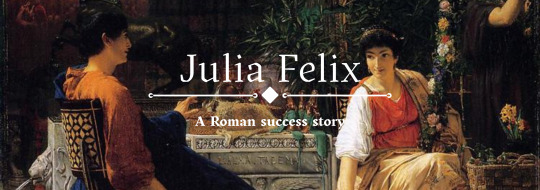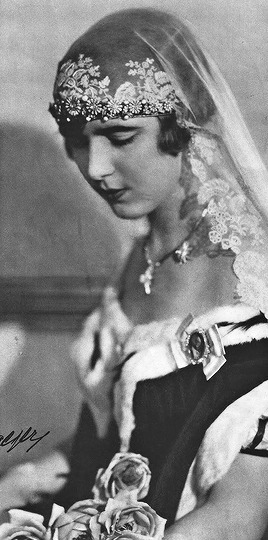#historyedit
Explore tagged Tumblr posts
Text








"December 1, 1627 My father has four wives, but I am the daughter of the one he loves most, Arjumand Banu Begum. I, too, am a Begum, a princess. My name is Jahanara, great-granddaughter of Akbar, the greatest Moghul ruler if India... I have diamonds the size of beetles, and I have thirty servants and eight elephants trained especially for me. I have everything except freedom. We are all of us imprisoned: my mother, my father, my younger brothers, and my younger sister. In tents hung with gold cloth, we drink from emerald-studded chalices and yet we are prisoners."
The Royal Diaries: Jahanara: Princess of Princesses, by Kathryn Lasky.
#litedit#bookedit#books#the royal diaries#historyedit#historicaledit#history#women's history#jahanara#jahanara begum#mughal history#mughal india#kathryn lasky#justin's edits
77 notes
·
View notes
Text






The ROMAN THEATRE OF ORANGE (Vaucluse, France) is the best preserved Roman theatre in Europe.
Built in the 1st century AD, it served the Roman colony of Arausio which was founded in 40 BC. The stage, which is 61 meters (200 ft) long and raised about one meter from the ground, is backed by a 37-meter-high (121 ft) wall whose height has been preserved completely. It is decorated with low reliefs commemorating the establishment of the Pax Romana, the central niche contains a monumental statue of the emperor Augustus. Mime, pantomime, poetry readings were the dominant forms of entertainment. Today, it is still used as its former function, primarily for opera and plays, alongside its use as a tourist spot.
#been there done that#AMAZING MEMORIES#france#history#roman empire#historyedit#archeology#ancient history#ancient culture#ancient civilizations#roman history
662 notes
·
View notes
Text










She wanted everything, but settled for nothing. (insp)
Anne Boleyn in The Tudors (2007-2010)
#anne boleyn#anneboleynedit#natalie dormer#ndormeredit#tudorsedit#tudoredit#the tudors#tudorerasource#periodedits#periodedit#perioddramasource#historyedit#perioddramagif#perioddramaedit#gifshistorical#weloveperioddrama#userperioddrama#userbennet#tv#tvgif#tvgifs#tved#gif#my gif#by me#tvfilmdaily#cinematv#perioddramasonly
719 notes
·
View notes
Text





Soulmates reuniting. BLACK SAILS— Jack Rackham and Anne Bonny in 03x08 “XXVI”
#jack's gifs#jack rackham#calico jack#calico jack rackham#anne bonny#black sails#black sails gifs#blacksailsedit#black sails edit#black sails fandom#historyedit#perioddramaedit#perioddramasource#perioddramagif#dailyflicks#dailyfilmsource#dailyfilmandtv#dailyfilmtvgifs#tvgifs#tvseriesedit#tvedit#filmgifs#filmedit#cinemapix#huluedit#movieedit#moviegifs#filmtv#toby schmitz#clara paget
453 notes
·
View notes
Text

"I am not shy, I'm merely bored. They hang beautiful clothes on me and load me with jewelry, I step outside to say a few words to the people, and then I rush into my bedroom, tear off my finery, and write." - Elisabeth of Austria in conversation with Queen Elisabeth of Romania, 1880s
1K notes
·
View notes
Text
#black panther party#black history#black power#black power movement#huey p newton#malcom x#history#historyedit
709 notes
·
View notes
Text




The Ball of the Burning Men (Le Bal des Ardents) Georges-Antoine Rochegrosse, c.1889
On 28 January 1393, a masquerade ball was held at the French royal court to celebrate the marriage of one of the Queen’s ladies-in-waiting. The King Charles VI and five of his noble companions performed a dance, a charivari, as ‘wild men’, in masks and shaggy costumes made from linen and resin. Such events were encouraged to distract the unstable Charles VI of France, who had suffered several "attacks of insanity" previously.
Due to the highly flammable nature of the costumes it was decreed that no candles or torches were to be brought into the room during the performance. But sadly the message did not reach the King’s brother, Louis, Duc D’Orléans, who appeared late and drunk with a lighted torch.
The result was grimly inevitable. One of the dancers caught a spark from the torches. As he careered around trying to put himself out, he soon set light to other dancers and pandemonium ensued. The five dancers and the King shrieked in pain as they burned in their costumes, and the audience, many of them also sustaining burns, screamed as they tried to rescue the burning men.
The King was saved when his teenage aunt threw her skirts over him to put out the fire. Another dancer leapt into a vat of wine. The other four performers were less fortunate, being "burned alive… releasing a stream of blood".
The event increased the King's mental illness and psychotic episodes, and fits of madness would recur for the rest of his life (the true cause of his illness is not known but based on his symptoms and family background, he probably suffered from schizophrenia).
The event went down in history as Le Bal des Ardents – the Ball of the Burning Men.
#charles vi#the mad king#(he was the one who believed he was made of glass so... yeah)#historyedit#history#painting#artedit#art#french artist#french side of tumblr#french history#royalty#Georges Antoine Rochegrosse#art history#19th century#xix century#paintings#symbolism#symbolism art#painting detail#painting details#art details#art detail
241 notes
·
View notes
Text






























history + last words
#history#art#karl marx#mozart#voltaire#emily dickinson#alexander the great#vincent van gogh#jane austen#ludwig van beethoven#alfred hitchcock#catherine of aragon#leonardo da vinci#historyedit#*mine
4K notes
·
View notes
Text







TUDOR WEEK 2024
Day 6: Favorite Tudor Couple - Elizabeth of York and Henry VII
The couple’s early years together may have been challenging, for Henry had to overcome his suspicions of his Yorkist bride and deal with her dangerous relations. Yet she clearly left him in no doubt as to where her loyalties lay. As time passed, he clearly grew to love, trust and respect her, and they seem to have become emotionally close. There survives good evidence that she loved him, and a moving account of how they comforted each other when their eldest son, Arthur, died. -- Alison Weir, Elizabeth of York: The First Tudor Queen/Elizabeth of York: A Tudor Queen and Her World
#elizabeth of york#henry vii#henry tudor#tudoredit#tudorweek2024#perioddramaedit#tvedit#periodedit#perioddramasource#dailyflicks#usergif#tvgifs#historyedit#house of tudor#henry x elizabeth#adaptationsdaily#romancegifs#creations
516 notes
·
View notes
Text

"Here’s what we know about Julia Felix: she lived in Pompeii from at least 62 CE. She was possibly illegitimate but was definitely not a member of the social and cultural elite. She worked for a living setting up and running a very interesting business and, by 79 CE, she had planned to shift her focus from managing a business to owning property. We know all these things because twentieth-century excavations at her business uncovered an advert, carved in stone and attached to the external wall of her huge building. It reads:
"To rent for the period of five years from the thirteenth day of next August to the thirteenth day of the sixth August, the Venus Bath fitted for the nogentium, shops with living quarters over the shops, apartments on the second floor located in the building of Julia Felix, daughter of Spurius. At the end of five years, the agreement is terminated."
This find illuminated the building it was attached to, bringing what otherwise looked like a very large anonymous domestic house into dazzling focus. With this description of the purpose of each room written by the owner herself, archaeologists and historians could see the site through a whole new lens and they realised that they had discovered a Roman entertainment space for the working middle classes. It is, so far, a completely unique find and it is magnificent. It offers us, as modern viewers, two amazing things: a little glimpse into the lives of the commercial classes of the Roman Empire who are so often completely and utterly invisible, and a brutal reminder that so much of what we ‘know’ about Roman women in the Roman world comes from rules concerning only the most elite.
We’ll do that second part first, because it’s the least fun. Roman written and legal sources are pretty universal in their agreement that although women could own property, they could not control it; they had no legal rights, could not make contracts and were to be treated as minors by the legal system for their entire lives. In order to buy or sell property women required a male guardian to oversee and sign off on any transactions. This is a basic truism of women in the Roman Empire, repeated ad nauseum by sources both ancient and modern including me, and it is undermined by Julia Felix’s rental notice.
The rental ad makes it pretty clear that Julia Felix is the owner-operator of a business complex including public baths, shops and apartments (there’s more too, as we’ll see), and she doesn’t seem to require anyone else to help her rent it out. She names her father – sort of; ‘Spurius’ might just mean that she is illegitimate – but this is effectively a surname, a personal identifier to differentiate her from other Julia Felixes in the area. It doesn’t mean her father was involved. Furthermore, the use of her father’s name as an identifier suggests that Julia didn’t have a husband and was either unmarried or widowed in 79 CE. The strong implication of her advert is that Julia Felix was an independent lady, a honey making money and a momma profiting dollars who could truthfully throw her hands up to Destiny’s Child.

We will never know if Julia escaped the flames and choking ash of 79 CE, fleeing as it swallowed her business and her home, but one discovery, made on 28 January 1952, suggests that she didn’t. The archaeologists, led by Amedeo Maiuri, uncovered on that day the skeleton of a woman who had fallen while running across the garden during the disaster. It’s clear this fallen woman was well off, because she was wearing a lot of gold jewellery. She carried four gold half-hoop earrings and wore four gold rings. Two of these rings were particularly expensive; both contained a red carnelian gem, one carved with a figure of Mercury, the other with an eagle. Around her neck she wore a necklace of gold filigree, dotted with ten pearls and hung with a green pendant. Someone stole both the necklace and earrings from the Pompeii Antiquarium in 1975 and no one, somehow, had ever bothered to photograph them so all we have are descriptions but the rings that survive are fine and expensive. The woman who wore them – was wearing them when she died – had real money to buy these objects and the woman who wore them did'nt leave Pompei in time.
Moreover, when she was found it was clear that at the moment of her death she was heading not towards the street or towards safety, but towards the shrine to Isis in the garden where all the most valuable possessions were kept. The valuable possessions that Julia Felix grafted for and maybe couldn’t bear to leave behind. There’s no way to tell whether this skeleton is Julia Felix, whether these bones once stood and looked at the plots of land Julia bought and made plans, or whether they belong to a looter or a chancer or someone just caught out. But it’s nice to pretend that Julia Felix, who shaped the city’s roads around her dream and offered respite and luxury to workers and made a tonne of money doing it, died and was buried with the place that still bears her name."
A Rome of One's Own: The Forgotten Women of the Roman Empire, Emma Southon
#julia felix#historyedit#history#women in history#ancient rome#pompei#businesswomen#italy#italian history#roman history#roman empire#1st century#historyblr#historical figures
775 notes
·
View notes
Text







Fancy Shawl through the decades
2K notes
·
View notes
Text




January 1928 ♦ Princess Ingrid of Sweden (later Queen of Denmark) photographed a few months short of her 18th birthday wearing The Turquoise Daisy Bandeau that she had inherited from her late mother, Princess Margaret of Connaught ✨
April 2025 ♦ Princess Isabella of Denmark (Ingrid's great-granddaughter) photographed in honour of her 18th birthday wearing The Turquoise Daisy Bandeau that has been gifted to her by her grandmother Queen Margrethe II of Denmark (Ingrid's daughter) ✨
#royaltyedit#historyedit#queen ingrid#princess isabella#princess isabella of denmark#danish royal family#swedish royal family#1928#2025#**#the turquoise daisy bandeau
187 notes
·
View notes
Text





“Lucrezia Borgia was the daughter of Rodrigo Borgia, the powerful Renaissance figure who later became Pope Alexander VI, and Vannozza dei Cattanei. Her brothers included Cesare Borgia, Juan Borgia, and Gioffre Borgia. She served for a time as de facto ruler of the Holy See during her father's absence. The fall of the power of the Borgias followed with her father's death in 1503 despite Cesare's immense capabilities. Cesare, gravely ill, was planning the conquest of Tuscany, but could do nothing without continued papal patronage. The new pope, Pius III, supported him, but his reign was short and was followed with the accession of the Borgias' deadly enemy, Julius II. While moving to Romagna to quell a revolt, Cesare was seized and imprisoned near Perugia. All Borgia lands were subsequently acquired by the Papal States. After exile to Spain, in 1504, followed by imprisonment and escape, Cesare joined his brother-in-law, King John III of Navarre; dying in his service during a military campaign in 1507. Meanwhile, Lucrezia, no longer needing to play a major political role at the court of Ferrara — which became a center for the arts and letters of the Italian Renaissance —was able to live a more normal life and turned to religion in her final years. She died on June 24, 1519 at the age of 39, due to complications occurring during the birth of her eighth child.”
#tvedit#historyedit#perioddramaedit#lucrezia borgia#the borgias#by tha#zanisummers#usersjen#userhayf#tuserlou#userfish#userclayy#tusereliza#userzaynab#userlenna#usermyr#userhann#light of my life
468 notes
·
View notes
Text








Catherine Parr in Art* vs Catherine Parr in Firebrand [Costumes designed by Michael O'Connor]
*Catherine sat for the Family of Henry VIII portrait in lieu of Jane Seymour who appeared in the portrait.
#firebrand#firebrandedit#perioddramaedit#historyedit#catherine parr#katherine parr#katheryn parr#katharine parr#jane seymour#alicia vikander#ours: edit#ours#movie: firebrand
563 notes
·
View notes
Text



“We will go together to Wessex, and you will be my... John, the uhm...” “The Baptist?” “John the Baptist, yes.” VIKINGS— 03x01 “Mercenary”
#jack's gifs#vikingsfavorites#ragnar lothbrok#ragnar lodbrok#athelstan#athelstan vikings#ragnar lothbrok x athelstan#ragnar x athelstan#athelnar#vikings#vikings tv#vikings tv show#vikings gifs#vikings gifset#vikingsedit#vikings edit#history channels vikings#history channel#historyedit#huluedit#tvedit#tvgifs#movieedit#moviegifs#filmedit#filmgifs#filmtv#dailyflicks#dailyfilmandtv#perioddramaedit
551 notes
·
View notes
Text

Anne's girlhood has been overlooked in the popular imagination. It is also a period that has been misrepresented, reduced to the upper-class equivalent of reform school. But Anne Boleyn's French girlhood was neither a punishment for bad behaviour nor a hotbed of flirtation.
Instead, the girl-centred atmosphere of the French court was a quiet and intimate world defined by close bonds with other women, forged over the performance of music, shared religious beliefs, and love of learning.
During the years Anne Boleyn spent in France, she participated in female friendships that extended across nations as well as generations.
- Deanne Williams, Girl Culture in the Middle Ages and Renaissance: Performance and Pedagogy
#anne boleyn#historicwomendaily#historyedit#history#*#the internet: girlhood is pink and glitter and lana del rey!#me: i just spent $103 on an academic publication about being a teenage girl in the middle ages!#guess who's having more fun?#it's me. i'm having the most fun.
846 notes
·
View notes